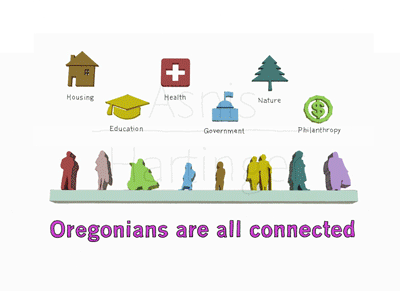We’re Weathering the Same Storm, We’re Not All in the Same Boat
/A message from our President & CEO Jesse Beason
These are trying and uncertain times. This virus has laid bare that our health, economy and democracy are inextricably linked. And it’s made clear that whether we’re Black or white, Latino or Asian, Native or newcomer, we’re all in this together.
But COVID-19 is also highlighting what was already true—while we’re weathering the same storm, we’re not all in the same boat.
While I type this in my makeshift office, my partner is at our dining room table fighting to make sure it’s not just the squeaky wheel getting the grease. He works in public education. Every day, it’s the kids that have laptops, wi-fi and parents with time and money that are successfully navigating this new learning space. But what about the kids whose housing and a chance at three meals a day has been taken by this virus? The kids who don’t have access to a computer or reliable internet? We’re failing them. And given our country's past, it's not surprising these kids are less likely to be white.
The same goes for adults. Black, Native and other people of color—across urban and rural communities—are more likely to be laid off or confined to dangerous jobs that cannot be done from home, denied proper protective equipment, and faced with barriers to adequate treatment and care.
It doesn’t have to be this way. We can pull through by pulling together as we’ve done in the past. All of us. Together. We define what possible means.
Over the coming months, the choices we make as individuals can reflect the best of what we know this region and country can be, where we look out for one another no matter our differences. The choices our governments make at this moment can do the same, setting a better course for the future of our communities. That course can’t just be a return to business as usual. We know that business as usual left too many of our neighbors behind.
There are proven solutions to the problems we face both in this crisis and those that existed before it. Philanthropy is uniquely positioned to help our leaders and our communities seek those solutions out. I hope you’ll join us in that effort. Because the future—our future—is what we do together.
May you, your families and communities be well. And may all of us rise to meet what this moment requires of us.











